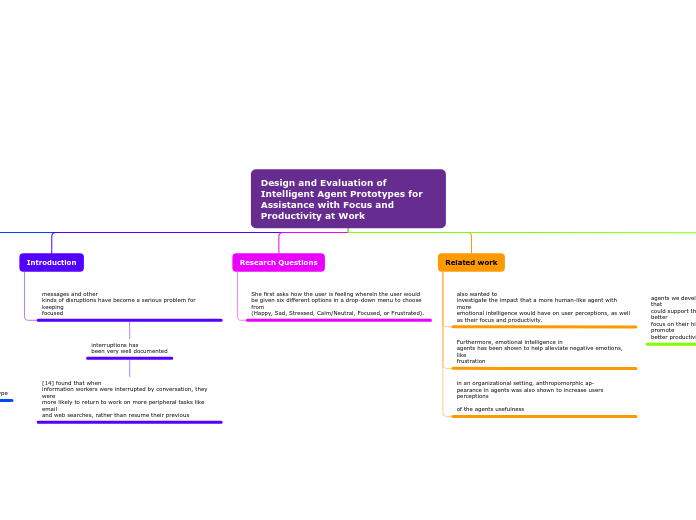Design and Evaluation of Intelligent Agent Prototypes for
Assistance with Focus and Productivity at Work
Abstract
productivity in the workplace
Schedule and manage time
monitor distractions
Text-based agent similar to a chat bot
134% more time with the TB
prototype, and 110% more time with the VA prototype
Introduction
messages and other
kinds of disruptions have become a serious problem for keeping
focused
interruptions has
been very well documented
[14] found that when
information workers were interrupted by conversation, they were
more likely to return to work on more peripheral tasks like email
and web searches, rather than resume their previous
Research Questions
She first asks how the user is feeling wherein the user would
be given six different options in a drop-down menu to choose from
(Happy, Sad, Stressed, Calm/Neutral, Focused, or Frustrated).
Related work
also wanted to
investigate the impact that a more human-like agent with more
emotional intelligence would have on user perceptions, as well
as their focus and productivity.
Furthermore, emotional intelligence in
agents has been shown to help alleviate negative emotions, like
frustration
in an organizational setting, anthropomorphic ap-
pearance in agents was also shown to increase users perceptions
of the agents usefulness
User workflow
agents we developed was to design an intelligent assistant that
could support the user’s task-related goals and help them better
focus on their high priority tasks, which would hopefully promote
better productivity and emotional well-being at work.
that task scheduling, task
switching and reminders, task re-attachment, and dealing with dis-
tractions were the most important skills to be incorporated in a
productivity assistant.
